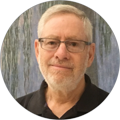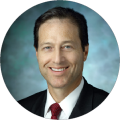POE Center Summits
POE Summits
National Summit on Workplace Mental Health and Wellbeing 2023
The Summit convened subject matter experts from both Johns Hopkins University and outside entities to discuss the state-of-the-art and state-of-science of workplace mental health and wellbeing as applied to the workforce in institutions of higher education. The Summit addressed the psychosocial, organizational, and environmental factors impacting the mental health and wellbeing of faculty and staff working in higher education at the graduate-school level. Panelists discussed best practices, evidence gaps, and practice solutions that address issues facing this group.
Mental Health in the Workplace 2022
In collaboration with the Johns Hopkins Education and Research Center (ERC) for Occupational Safety and Health, we, the John Hopkins POE Total Worker Health® Center in Mental Health, will be hosting an interactive, Hybrid (in person and virtual) Fall Summit, the Mental Health in the Workplace Summit. This is a regional summit oriented to local stakeholders and will focus on workplace culture, peer support, communication about mental health, and burnout, among other topics. We welcome those interested in workforce mental health to join.
REGISTRATION
AGENDA
More information
Speakers

Taylor Adams Taylor Adams (she/her), Mental Health America’s (MHA’s) Director of Workplace Mental Health, developed and spearheads the Bell Seal for Workplace Mental Health national employer recognition program and MHA’s annual Mind the Workplace research reports. Her previous work was focused on suicide prevention, and she brings this experience to support companies in evaluating and refining policies to support staff in their mental health journeys. Mental Health America (MHA) - founded in 1909 - is the nation’s leading community-based nonprofit dedicated to addressing the needs of those living with mental illness and promoting the overall mental health of all.

David W. Ballard, PsyD, MBA, is an organizational consultant with more than 15 years of prior experience as a non-profit executive. His emphasis is on promoting employee well-being and organizational performance through the integration of psychology and business. Dr. Ballard’s work focuses on organizational effectiveness, occupational health promotion, workforce mental health, program design and evaluation, and systems-level workplace interventions. He is the Scientific Advisor for Workforce Mental Health at the Health Enhancement Research Organization (HERO), serves on the boards of directors for The Health Project and Sound Mind, co-chairs the Advisory Committee for The Carolyn C. Mattingly Award for Mental Health in the Workplace, and is a member of NIOSH’s Cross-Sector Council on Healthy Work Design and Well-being.

Lee Daugherty-Biddison, MD, MPH, is Associate Professor of Medicine in the Johns Hopkins Division of Pulmonary and Critical Care Medicine and Chief Wellness Officer for Johns Hopkins Medicine. She is Associate Faculty in the Johns Hopkins Armstrong Institute for Patient Safety and Quality and a Contributing Scholar in the Johns Hopkins Center for Health Security. Dr. Daugherty Biddison’s research interests include hospital operations, patient safety, critical care disaster response, and physician well-being.

Paul DeChant, MD, MBA, FAAFP, is a thought leader to C-level executives pursuing organizational well-being. He is an authority on reducing physician burnout by fixing dysfunction in the clinical workplace. He is co-author of the book, “Preventing Physician Burnout: Curing the Chaos and Returning Joy to the Practice of Medicine”, speaks internationally, and blogs regularly at www.pauldechantmd.com. Paul is an experienced physician executive with more than 25 years of clinical and management experience in all aspects of medical group leadership, including quality improvement, strategic planning, financial growth, acquisitions, and Lean transformation.

Michelle Eakin, PhD, MA, is an Associate Professor in the Division of Pulmonary and Critical Care Medicine at Johns Hopkins School of Medicine. She is a clinical psychologist who focuses on developing, evaluating and implementing evidence based behavioral interventions to improve mental and physical well-being. She has multiple NIH grants to develop and implement programs to reduce health disparities and improve well-being in Baltimore.

Ron Goetzel, PhD, is a Senior Scientist and Director of the Institute for Health and Productivity Studies (IHPS) at the Johns Hopkins Bloomberg School of Public Health. The mission of the IHPS is to bridge the gap between academia, the business community, and the healthcare policy world – bringing academic resources into policy debates and day-to-day business decisions and bringing worker health and productivity management concerns to academia. He is an internationally recognized and widely published expert in health and productivity management (HPM), return-on-investment (ROI), program evaluation, and outcomes research. Dr. Goetzel has published well over 200 peer-reviewed articles and book chapters and frequently presents at international business and scientific forums.

Enid Chung Roemer, PhD, is an Associate Scientist in the Department of Health, Behavior and Society, and Deputy Director at the Institute for Health and Productivity Studies, Johns Hopkins Bloomberg School of Public Health. She has 20 years of experience conducting measurement and research examining the impact of workplace health promotion and protection programs on both individual and organizational health and productivity outcomes. Dr. Roemer is among the core research faculty of the John Hopkins POE Center, and is currently engaged in two of the studies focused on the mental health of essential workers. She is also a founding Co-chair member of the Carolyn C. Mattingly Award for Mental Health in the Workplace.

Rich Safeer, MD, Richard Safeer is the chief medical director of employee health and well-being for Johns Hopkins Medicine. In this role, he leads the Healthy at Hopkins employee health and well-being strategy. He currently sees patients in the Johns Hopkins Hospital Division of Pediatric Cardiology. In addition, he teaches in the Department of Health, Behavior and Society at the Johns Hopkins Bloomberg School of Public Health.
